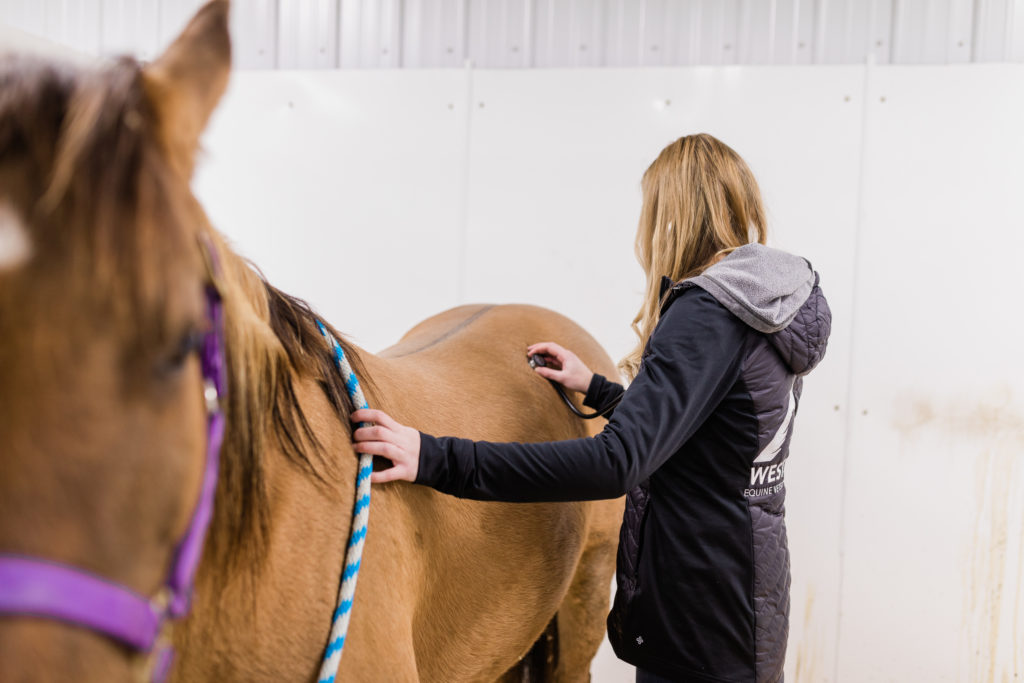Hello friends! I hope you are staying safe and well during these unprecedented events we are living through. Today I have another great write up from Dr. Emily Graham of Westhills Equine Veterinary Services. I hope you find this post as informative and interesting as I did, and if you have any questions or would like to book an appointment, please reach out to Dr. Graham!

Emily Graham DVM, VSMT, cVMA
Westhills Equine Veterinary Services
53110 Range Rd 25, Parkland County, AB T7Y 2M1
(780) 898-9267
https://www.westhillsevs.com/
Instagram:
@westhillsequine
@dremilydvm
Welcome to Spring! Even though the weather and current situation isn’t really very Spring-like there are a few things we can’t forget when it comes to Springtime vaccines.
The biggest thing with vaccinations is knowing what your horse requires (shows, boarding facility), what is considered CORE and knowing exactly what you are vaccinating with. There are several different vaccine companies that have a variety of combinations of vaccines. So I can’t stress enough that one company’s “4 way” is not necessarily the same as another company’s “4 way”. This makes it super important to become familiar with what you are vaccinating with and knowing what is in the “4 way” or “2 way” or whatever “way” you are giving.
Types of Vaccines
Core vaccines (ones that all horses should get no matter if they travel or not) include:
1. Eastern Equine Encephalomyelitis (EEE)
Along with WEE this is a neurologic disease that is transmitted by mosquitos. Common symptoms are neurological signs such as behavior or gait abnormalities. It will cause death in about 90% of cases.
2. Western Equine Encephalomyelitis (WEE)
See EEE. This has been diagnosed in Alberta as early as last year. It will cause death in about 50% of cases.
3. Tetanus
All horses are at risk for being affected by tetanus as it is from a common bacteria that is in the environment. Horses are often affected when they get puncture wounds or open lacerations. Common symptoms include prolapse of the third eyelid and a stiff sawhorse like stance.
4. West Nile Virus
This is a neurological disease that is present in Alberta that is transmitted by mosquitos. Fatality is approximately 30%. For those horses that recover there are often residual neurological effects. Common symptoms include neurological signs such as behavioral abnormalities and abnormal gait.
5. Rabies
Considered a core vaccine by AAEP (American Association of Equine Practitioners) but not commonly vaccinated for in Alberta. In Eastern Canada and most areas of the United States this vaccine is given yearly. A new vaccine product by ZOETIS this year has added rabies to the first four vaccines listed above (EEE/WEE, Tetanus and WNV) to produce a new “5 way” vaccine. While the incidence of rabies is low it is always fatal. Exposure is through a bite from an infected animal (bat, racoon etc).
Risk Based Vaccines: These vaccines are considered risk based vaccines in Alberta meaning they should be given according to lifestyle of the horse, contact with other horse populations and region that the horse resides in. They include:
1. Equine Herpes (EHV, Rhinopneumonitis)
EHV 1 and 4 typically effect the respiratory tract and can lead to mild to severe respiratory symptoms including fever, cough, lethargy and nasal discharge. EVH 1 and 4 are spread primarily through the respiratory route or through contact with affected fetal fluids/tissues and placenta. EHV can also cause abortion in pregnant mares. Herpes viruses can lay latent (inactive) in many horses for a long period of time and then activate again in times of stress/immunocompromise. Horses that should be getting a herpes vaccine include performance horses (Equestrian Canada requires this vaccine for EC sanctioned shows), boarding facilities, facilities with a lot of horses going in and out, horses less than 5 years of age, horses on breeding farms or in contact with pregnant mares, This vaccine is recommended to be given every 6 months.
2. Equine Influenza (Flu)
This is the one of the most common infectious respiratory diseases in horses. Symptoms are similar to equine herpes, except this virus does not cause abortions. Influenza is endemic in many horse populations. Symptoms include a high fever, nasal discharge, and coughing. It can look very similar to EHV. Horses that should be getting a flu vaccine include horses under 5 years old, horses with frequent contact with large number of horses (boarding facilities, places where horses are going in and out) and performance horses (Equestrian Canada requires this vaccine for EC sanctioned shows).
3. Strangles
This disease is caused by a highly contagious bacteria known as Streptococcus equi equi (note this is not Streptococcus equi zooepidemicus which causes a different, often less serious disease process). Clinical signs include fever, dysphagia (difficulty swallowing), enlarged submandibular lymph nodes (lymph nodes under the jaw, often times they burst and drain), nasal discharge. This disease comes from direct or indirect (water troughs, clothes, sponges, tack and grooming equipment) contact with an affected horse or a subclinical (does not show signs of disease) carrier. The effective vaccine is a modified live intranasal vaccine. This modified live vaccine does not cause the disease. This vaccine CANNOT be given in the muscle or it will cause severe abscessing. This vaccine also must be given AFTER any intra muscular vaccines or it can get blown onto the neck and accidentally injected into the muscle with intramuscular vaccines, causing abscessing. This vaccine is given every 6-12 months.
4. Potomac Horse Fever
This is a diarrhea disease in horses caused by a bacteria Neorickettsia Risticii that can be present in snails, caddisflies and mayflies. The most obvious risk is stagnant bodies of water although I have seen cases where the horse has been affected when in a pen only with automatic waterers. We see a dozen or more of these cases at Westhills every August-October. The most common clinical sign is severe diarrhea but can also include laminitis, colic and fever leading to severe dehydration and sepsis. Mortality rate can be as high as 30%. Clinically ill horses are not contagious- this is one of the few diarrhea diseases that is not contagious. Treatment is with an antibiotic specific to the bacteria involved. Vaccines should be given before early to mid summer for full protection.
Now you have information (probably more than you wanted to know) on all the main diseases we vaccinate for in Alberta. Some of these diseases have a very high mortality rate and can be easily prevented by vaccinating appropriately. If you have any questions feel free to contact me (Dr Emily Graham) at Westhills Equine Veterinary Services (780) 898-9267 located just west of Stony Plain, AB.
Thanks so much Dr. Emily for doing that great write up! If you have an idea for a feature on The Yeg Equestrian, get in touch at Hello@TheYegEquestrian.com






